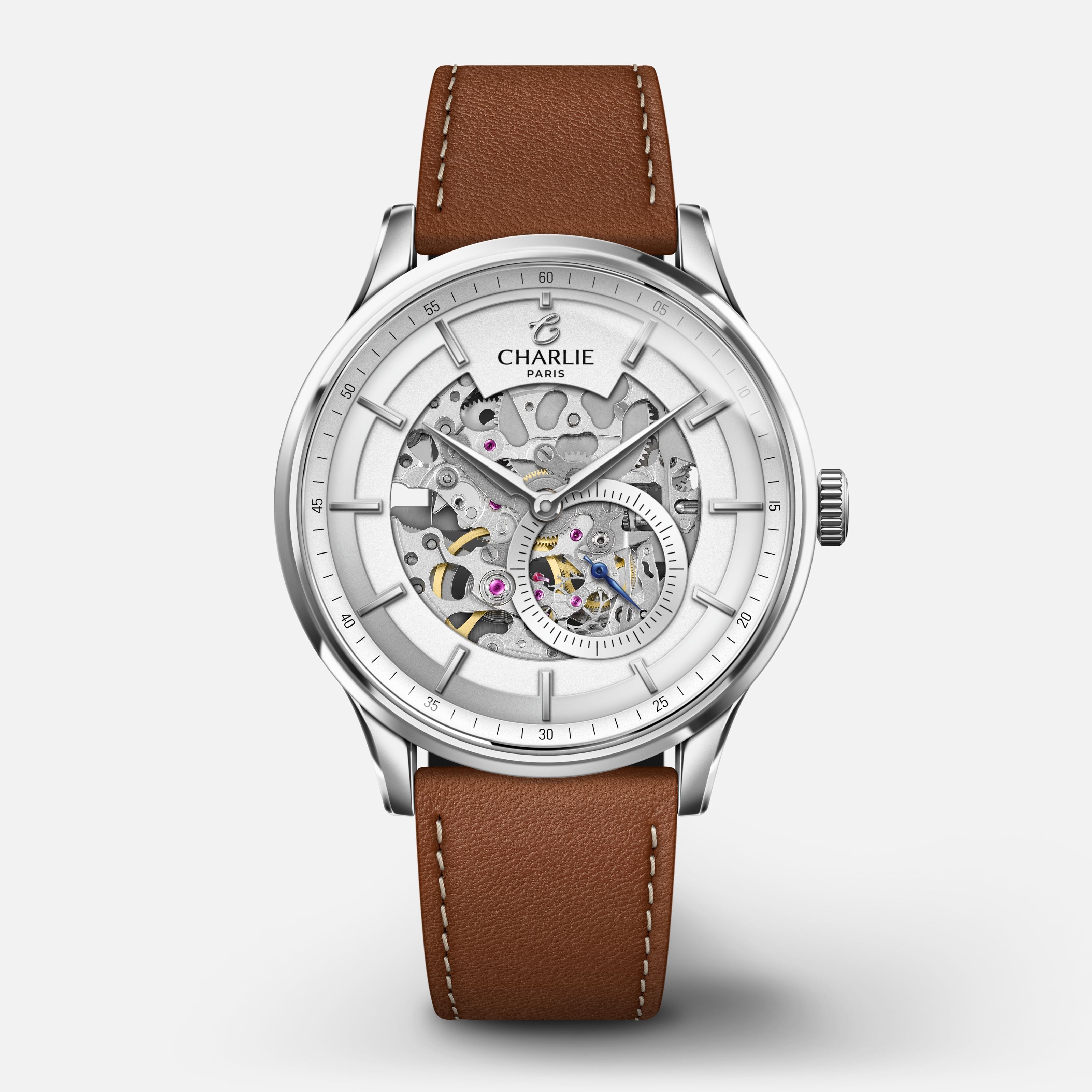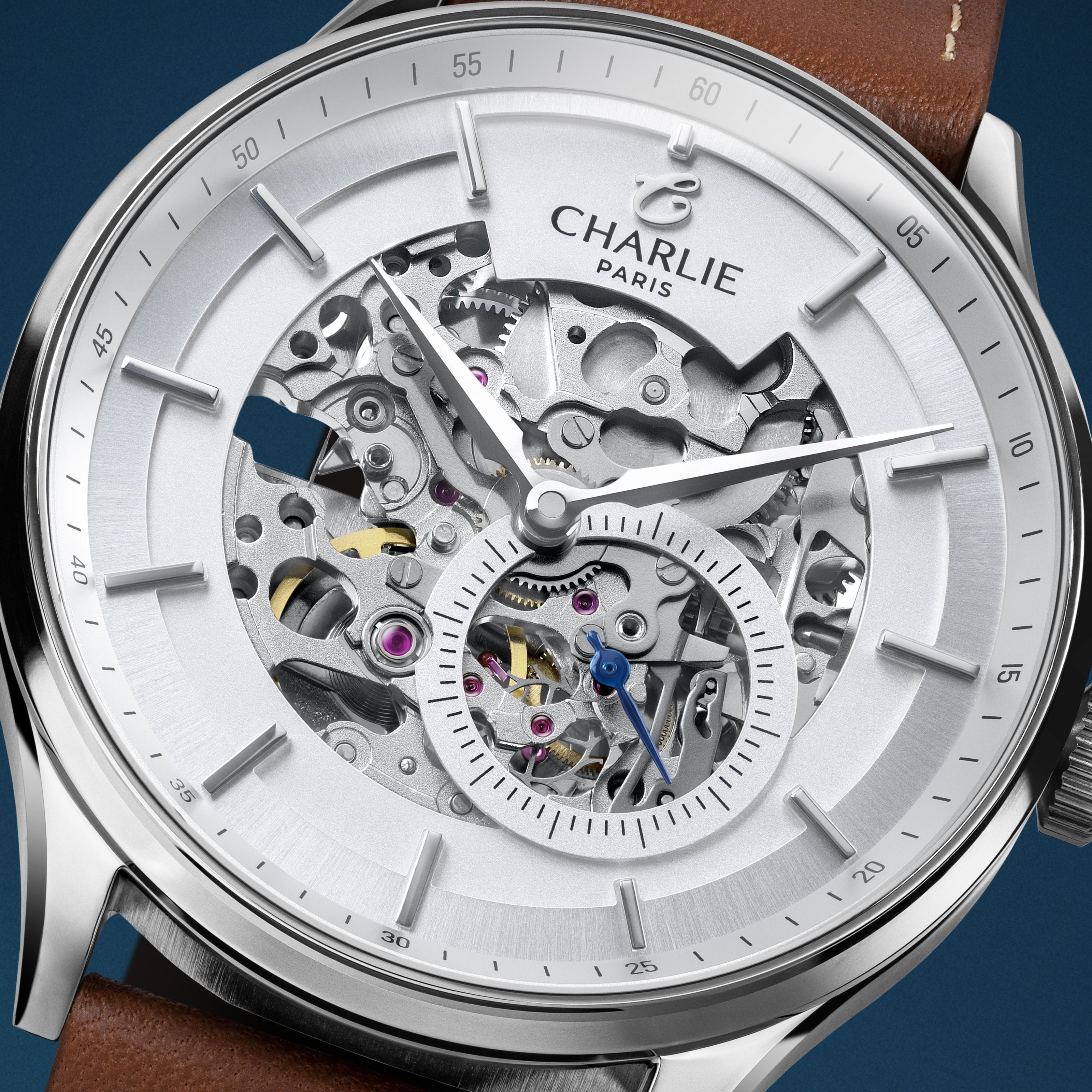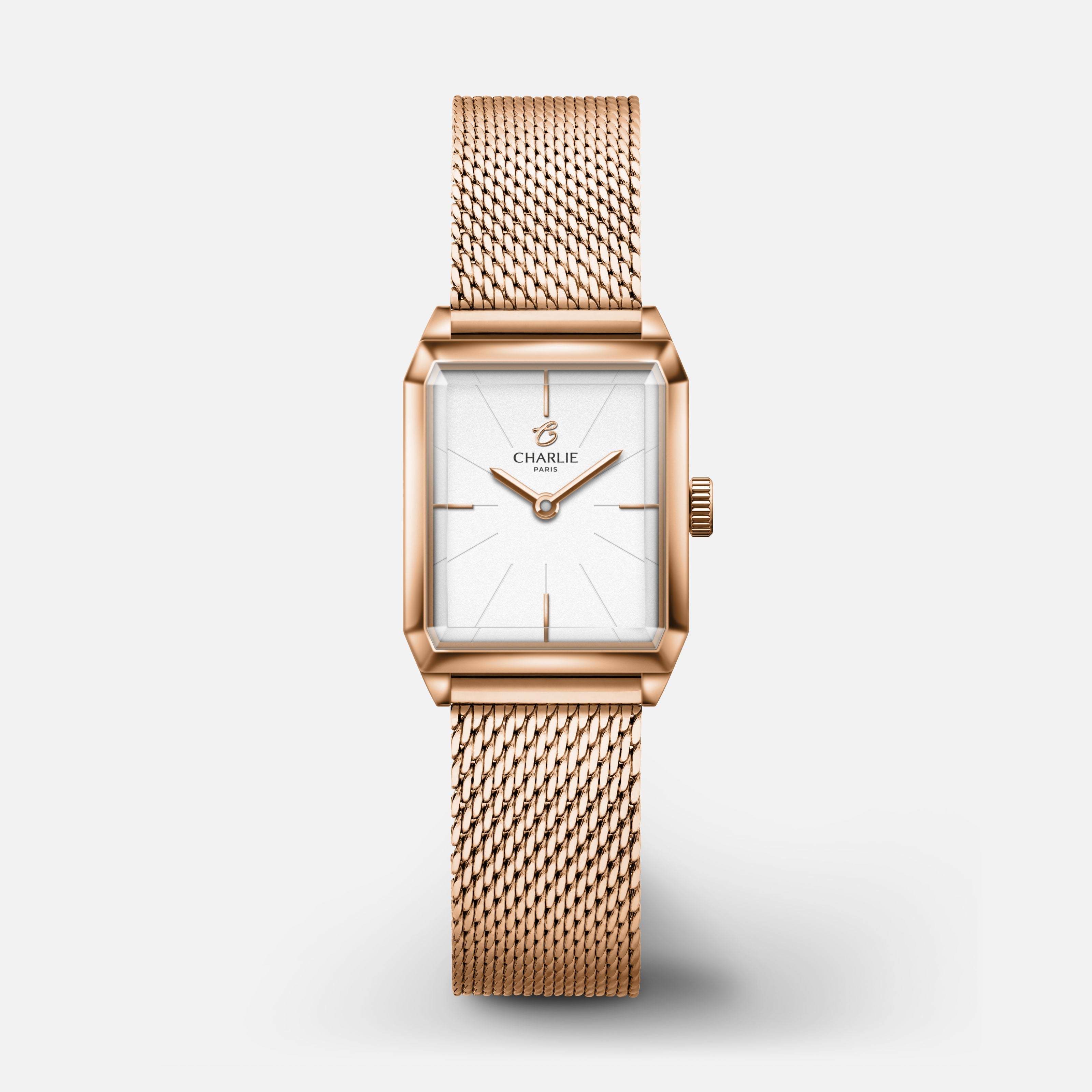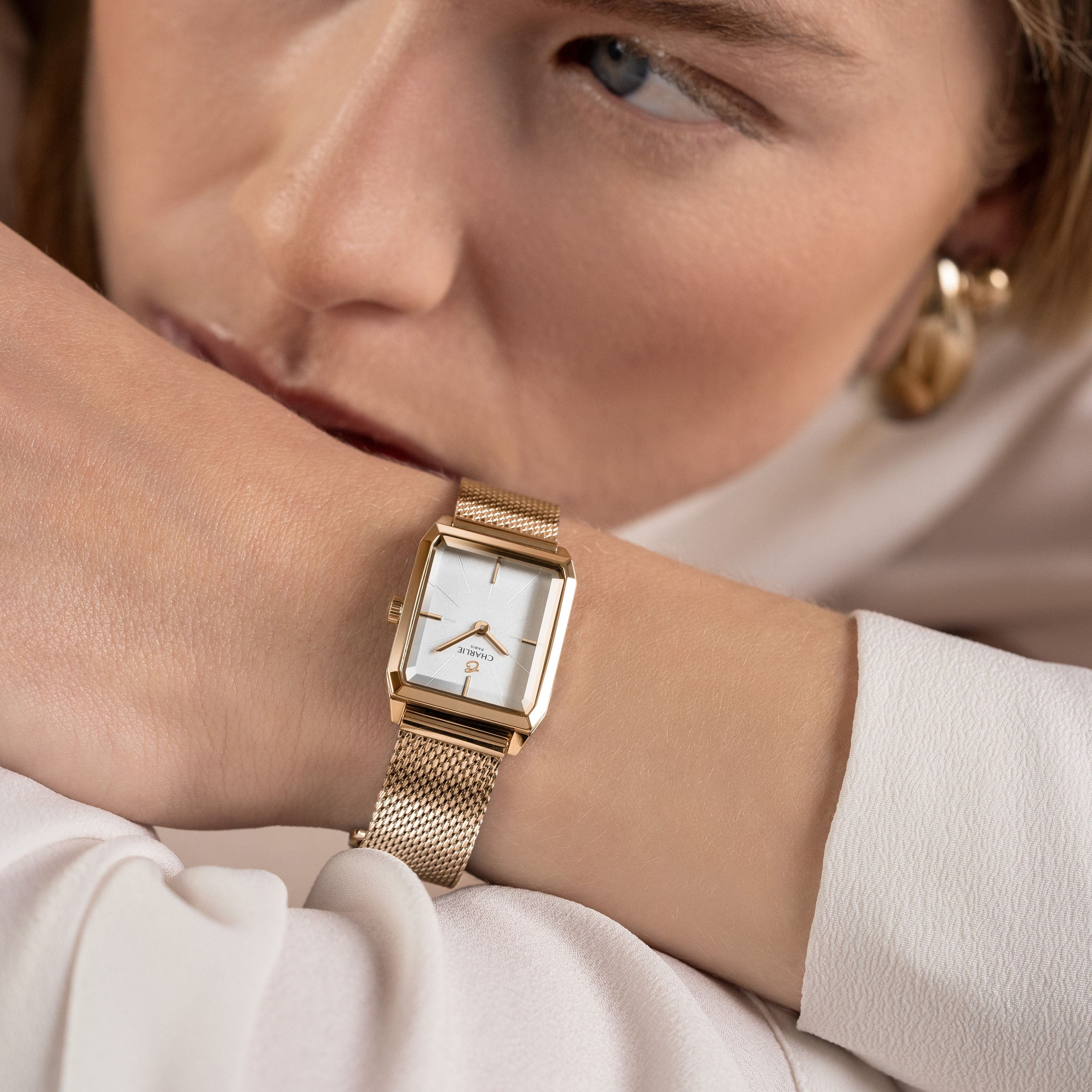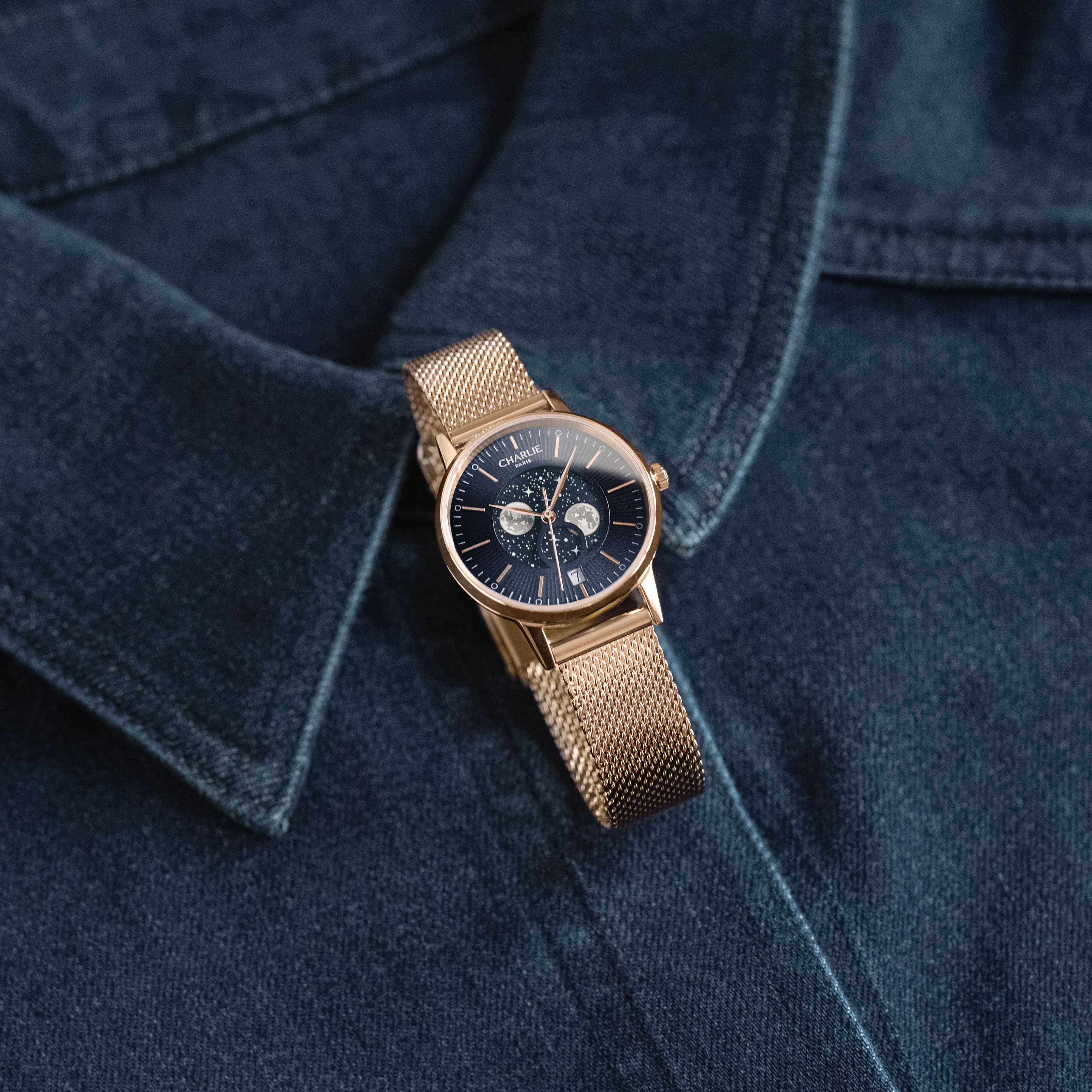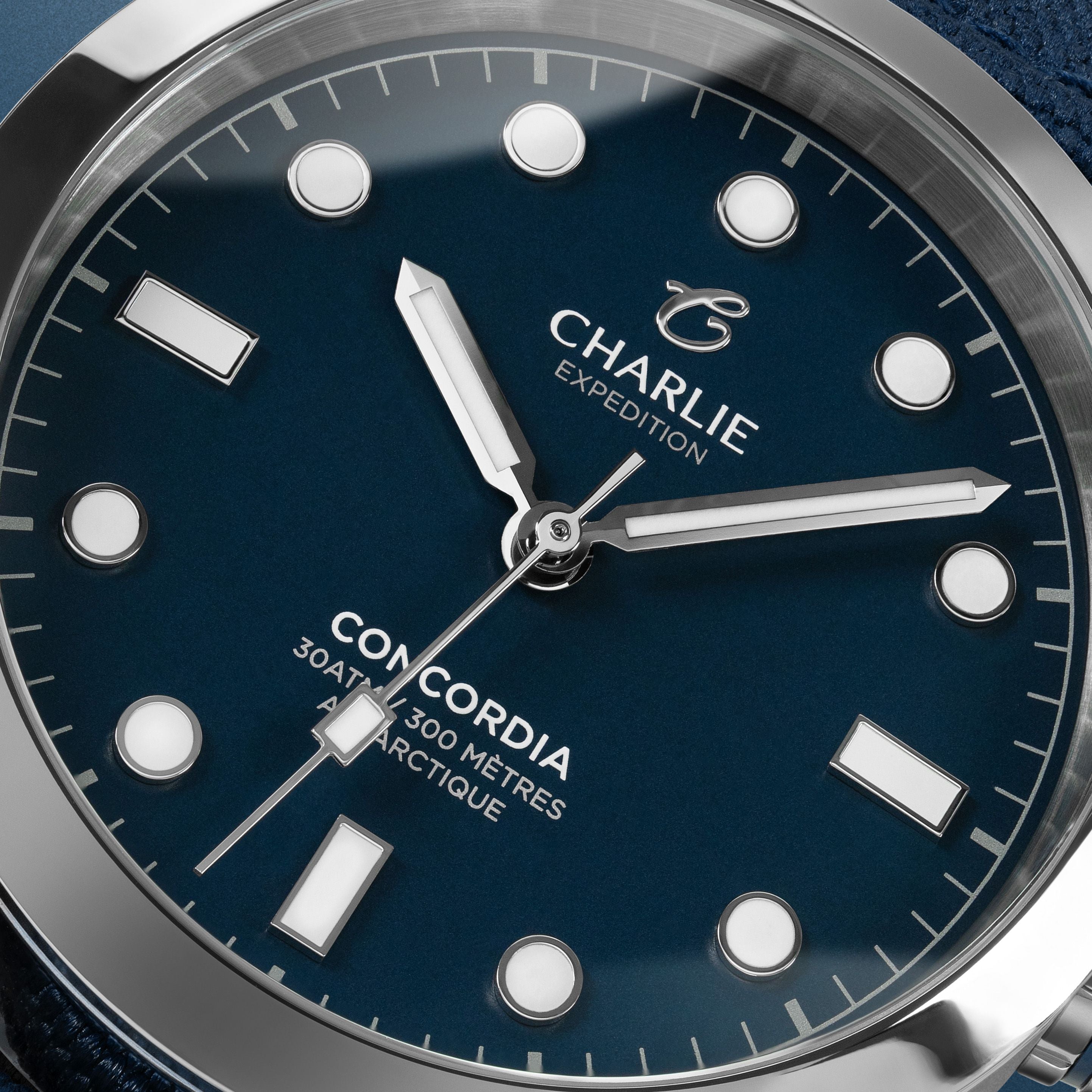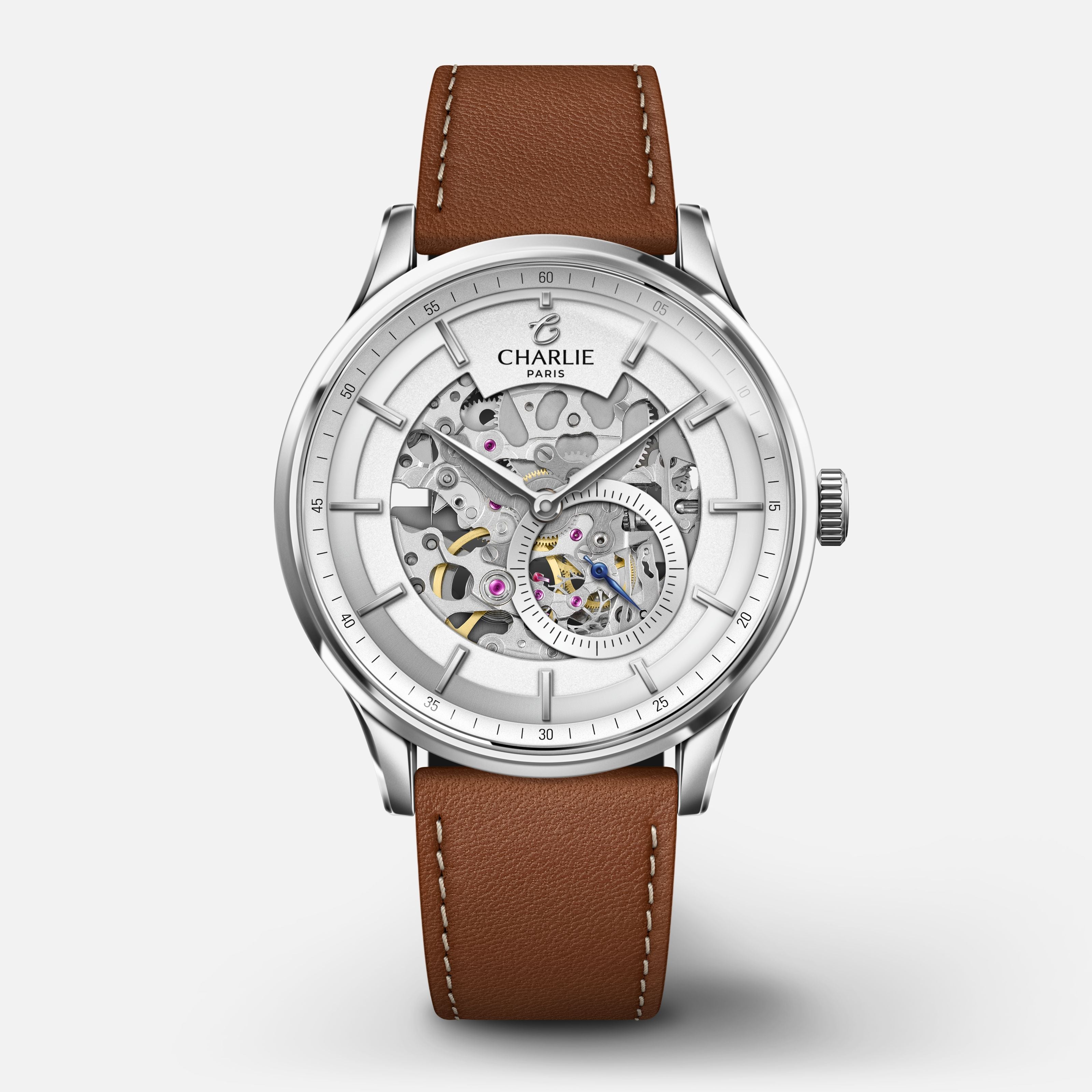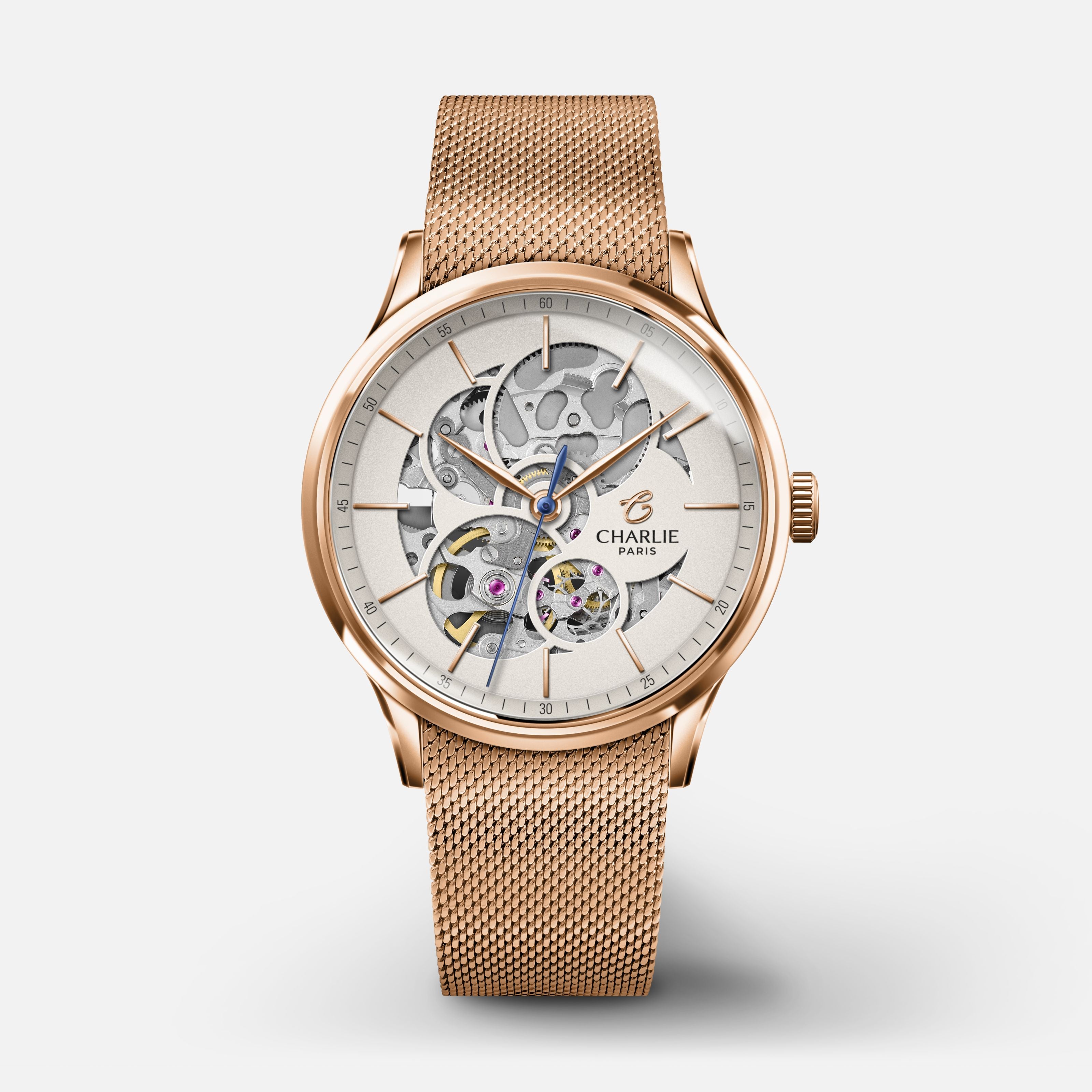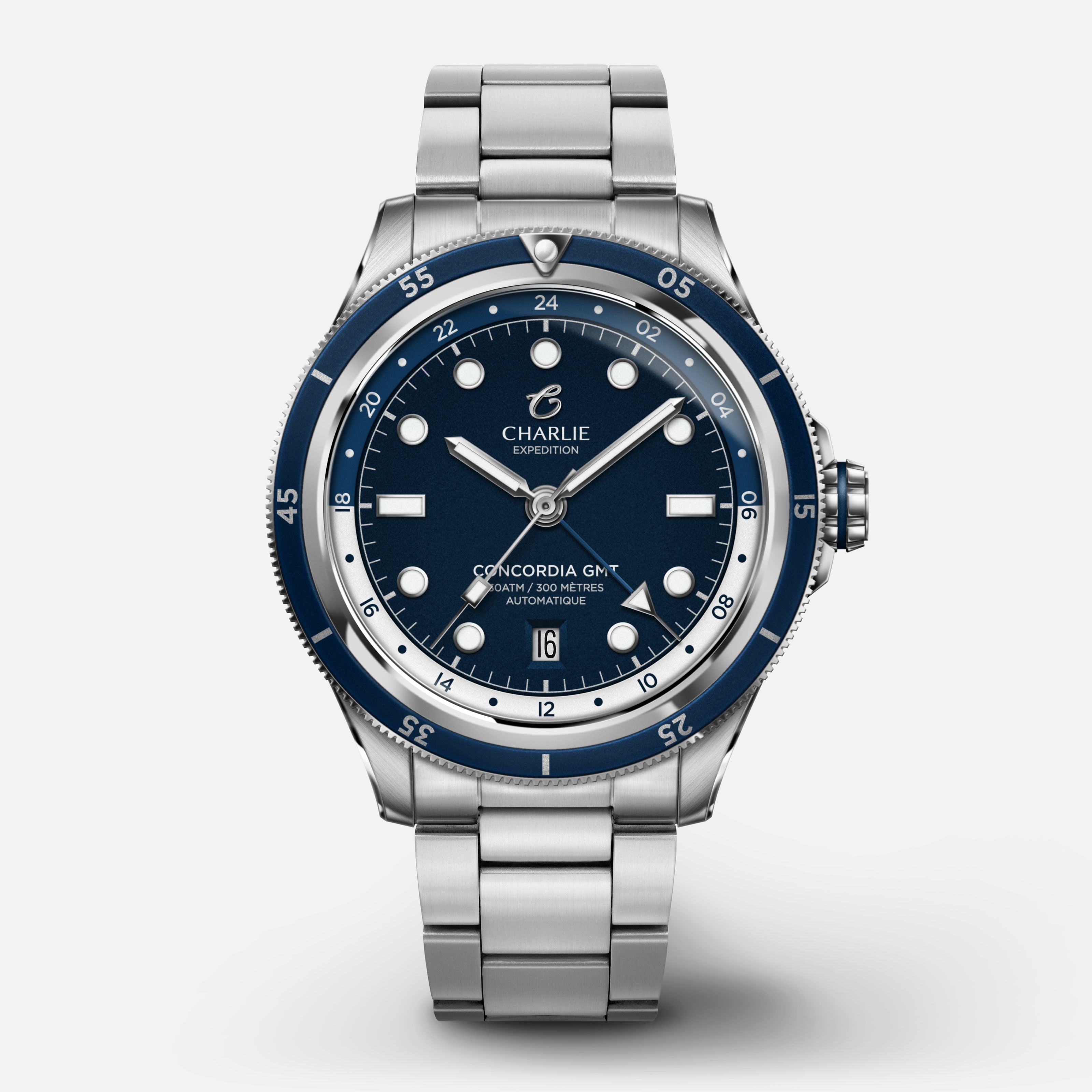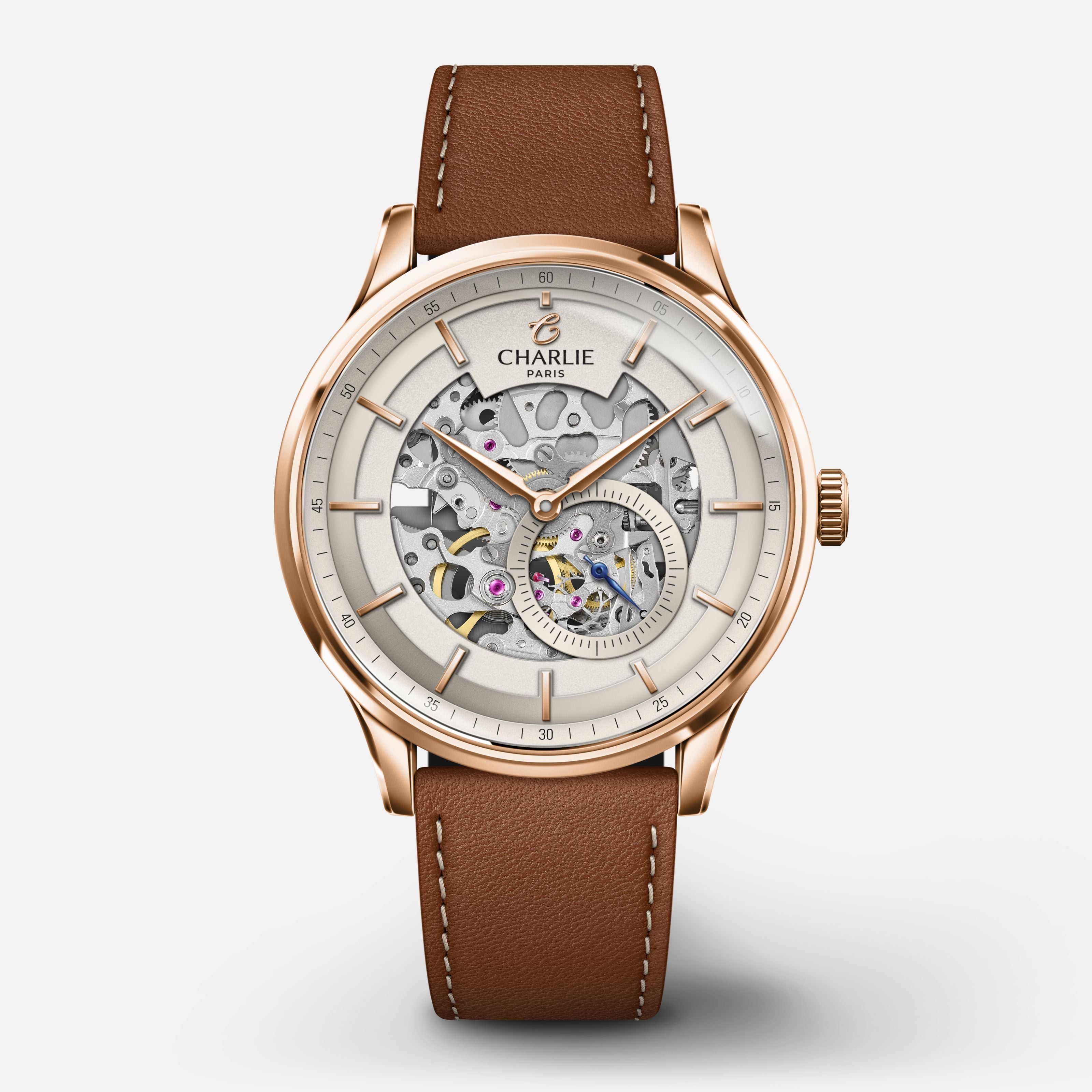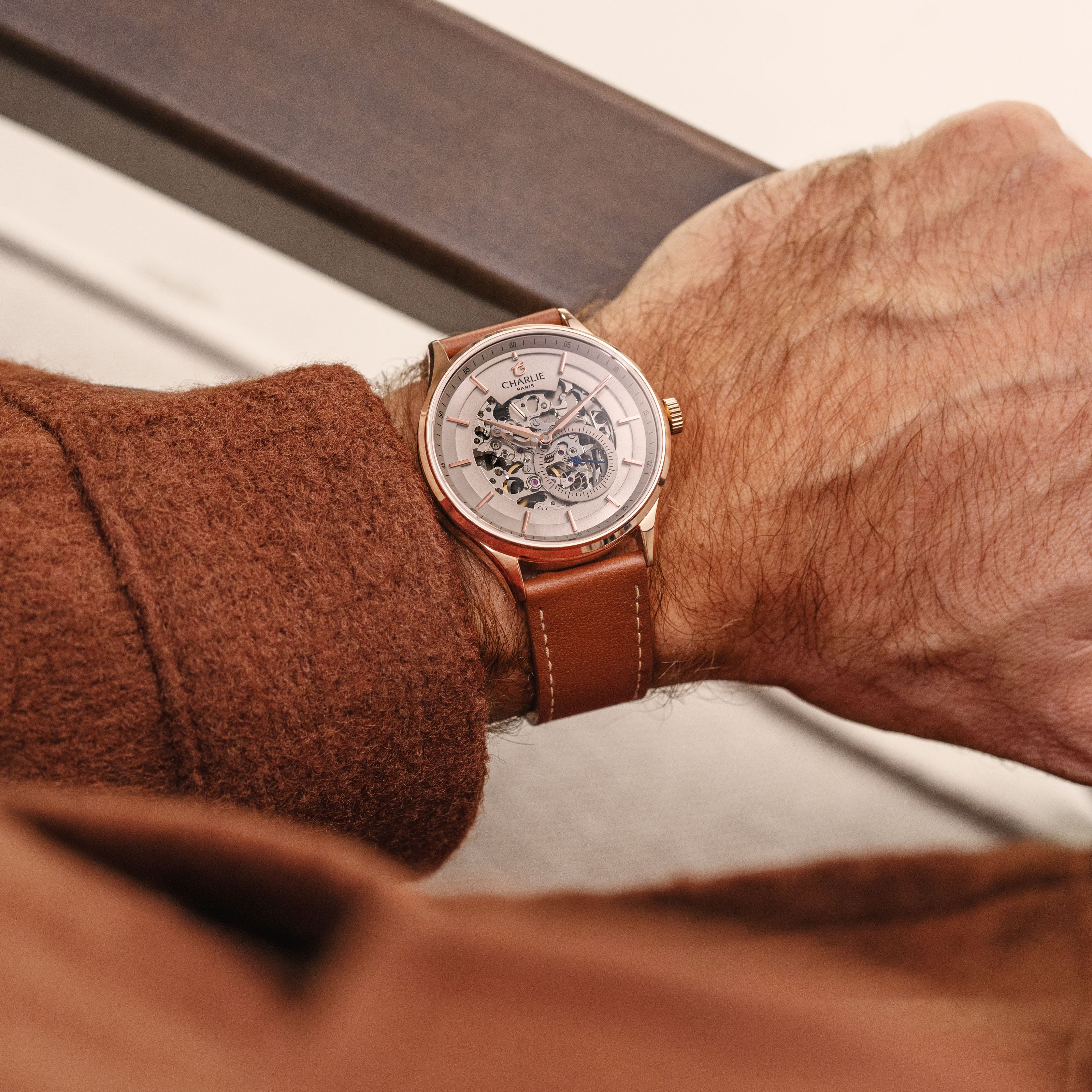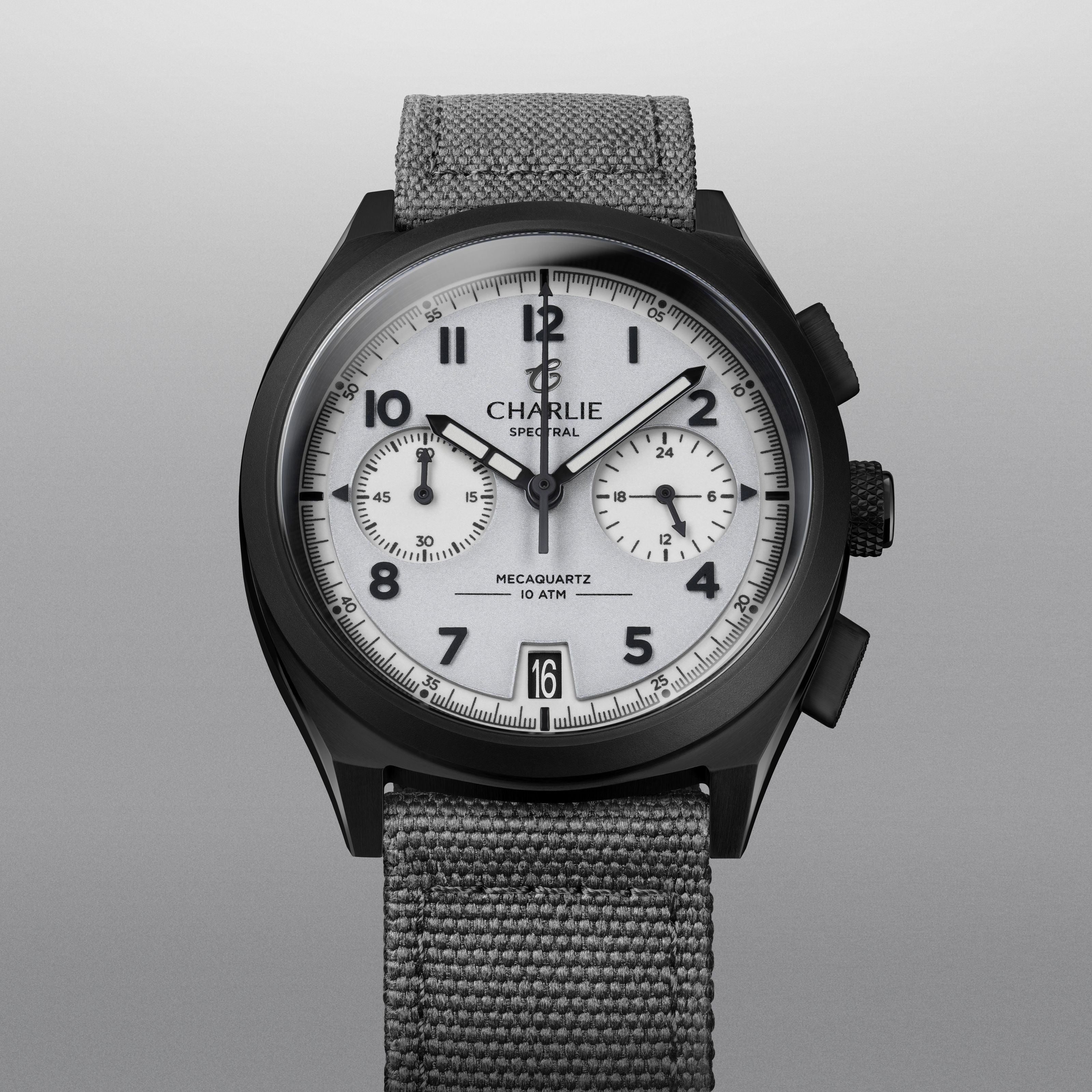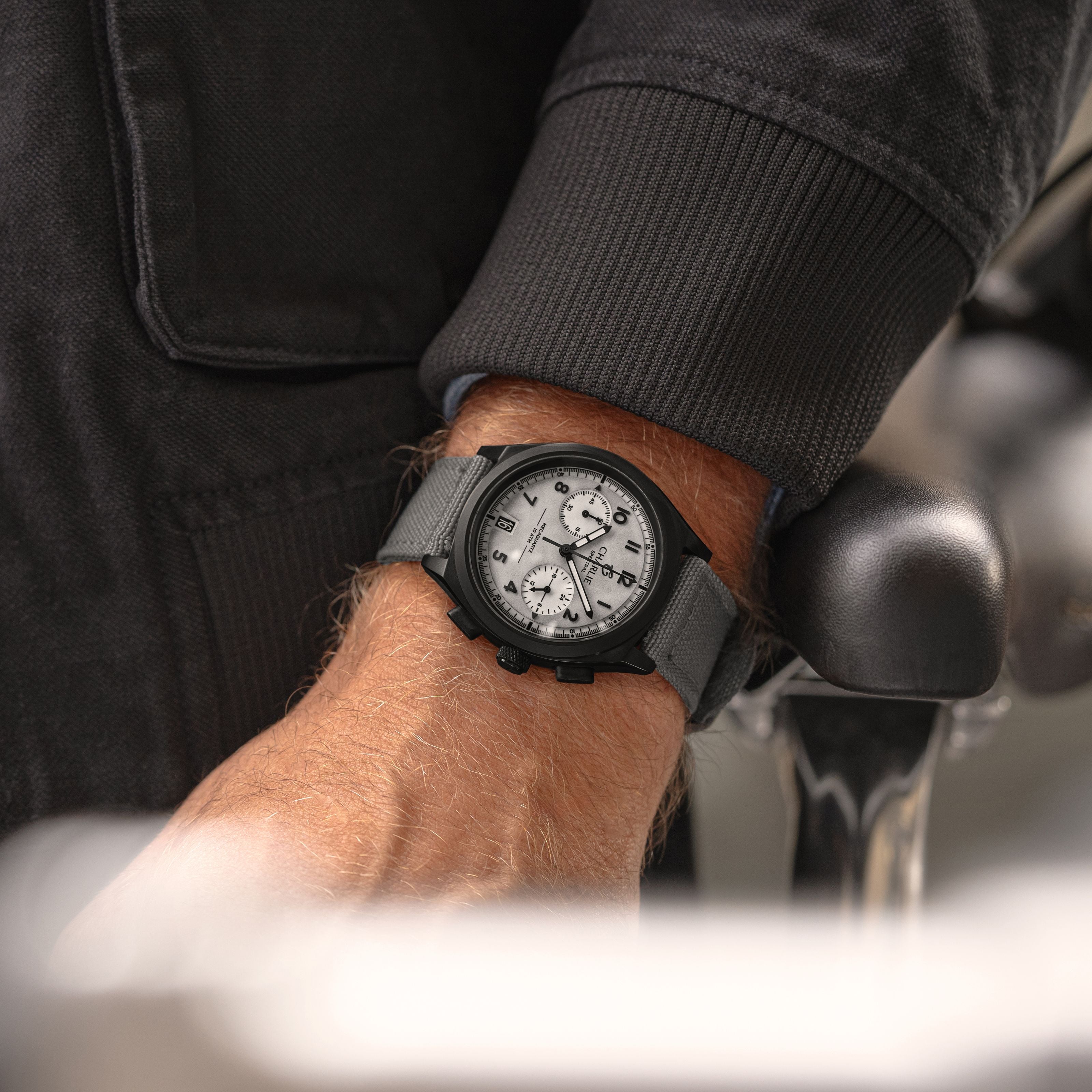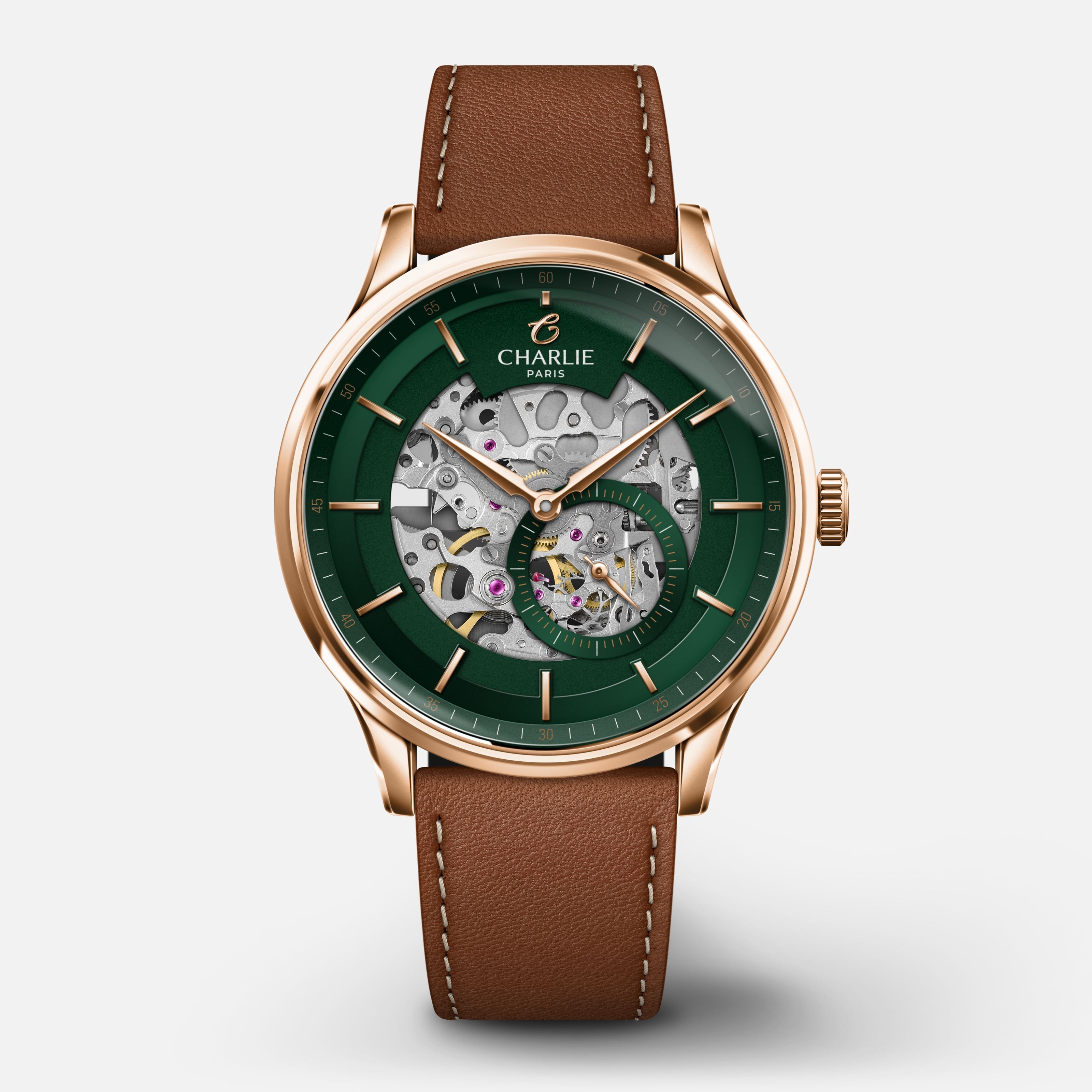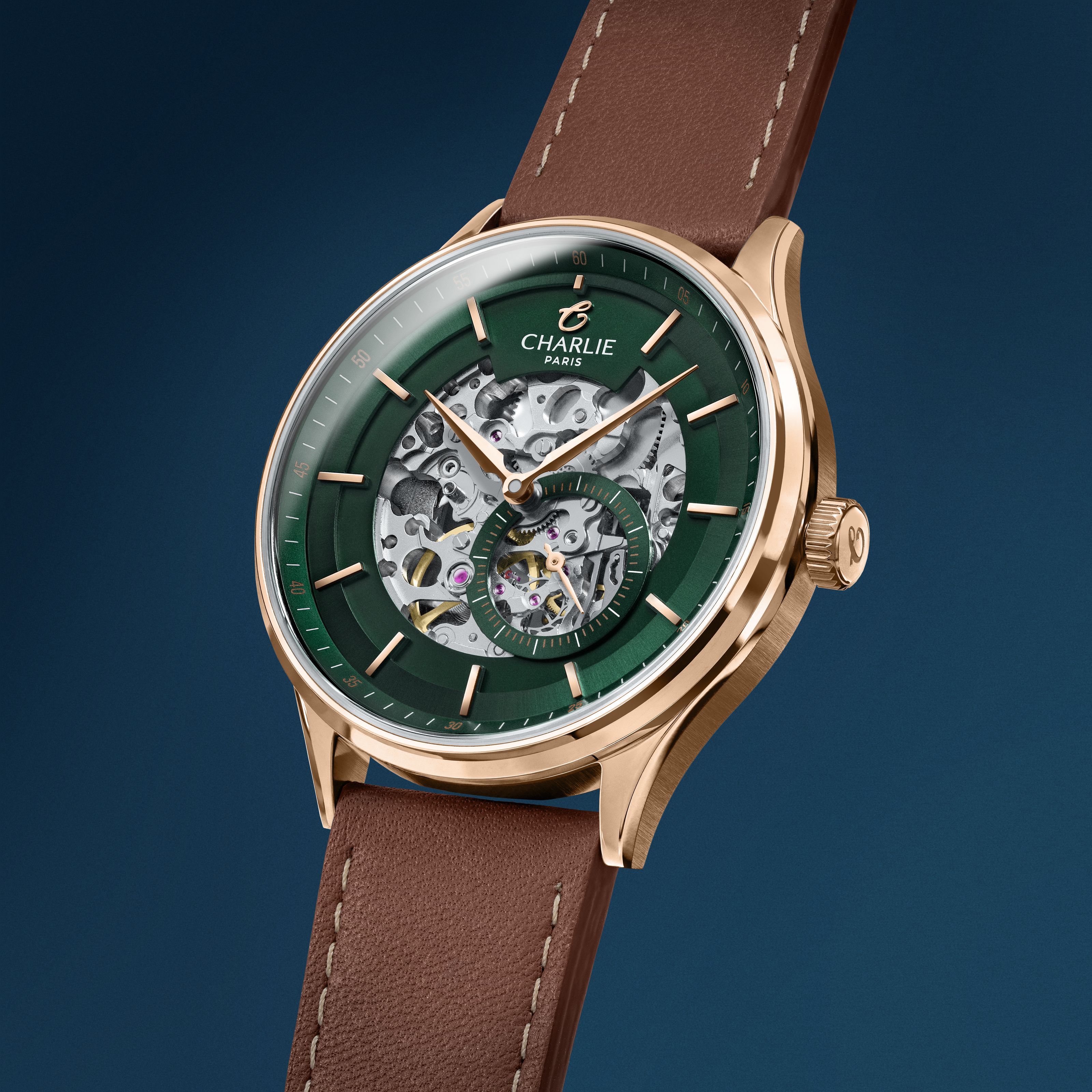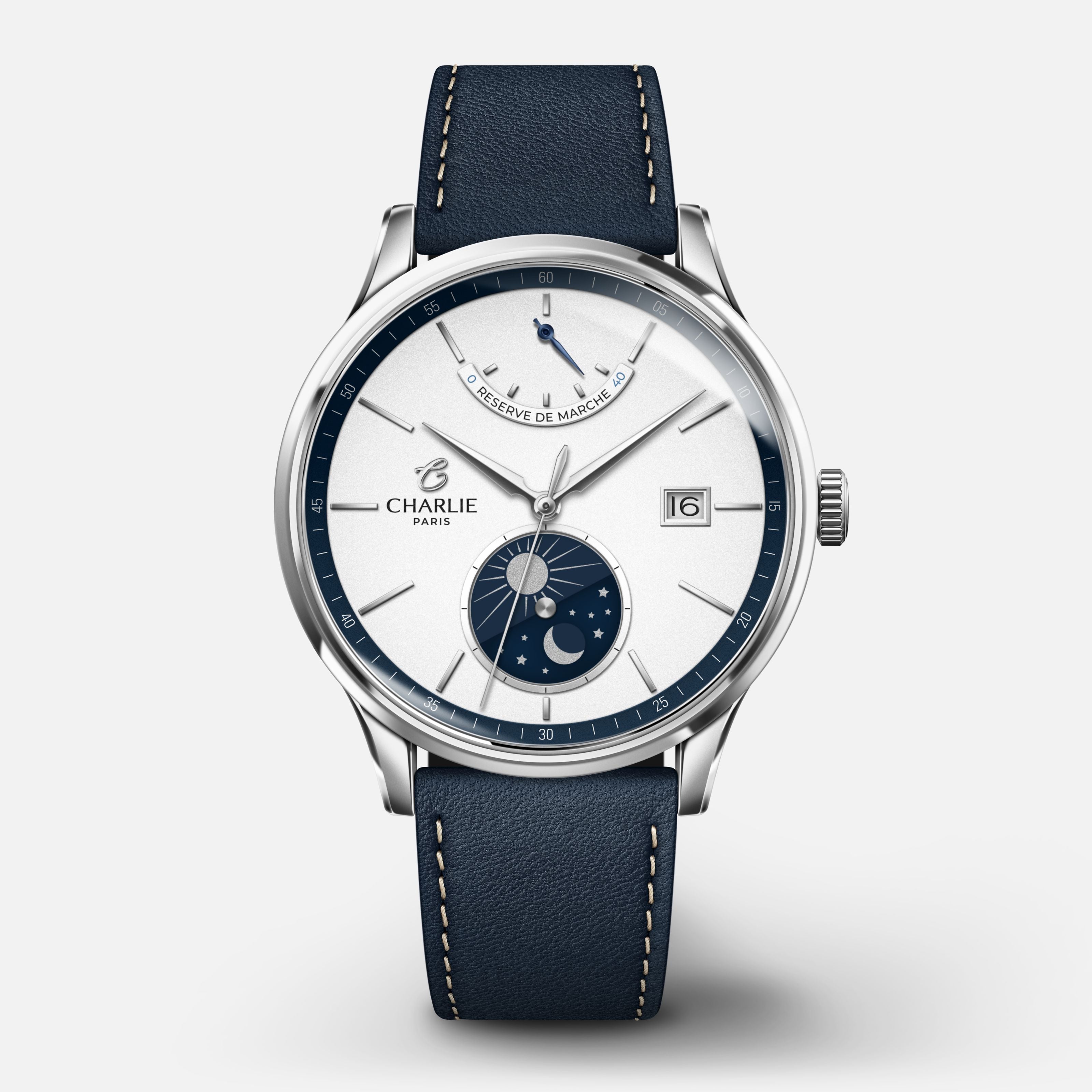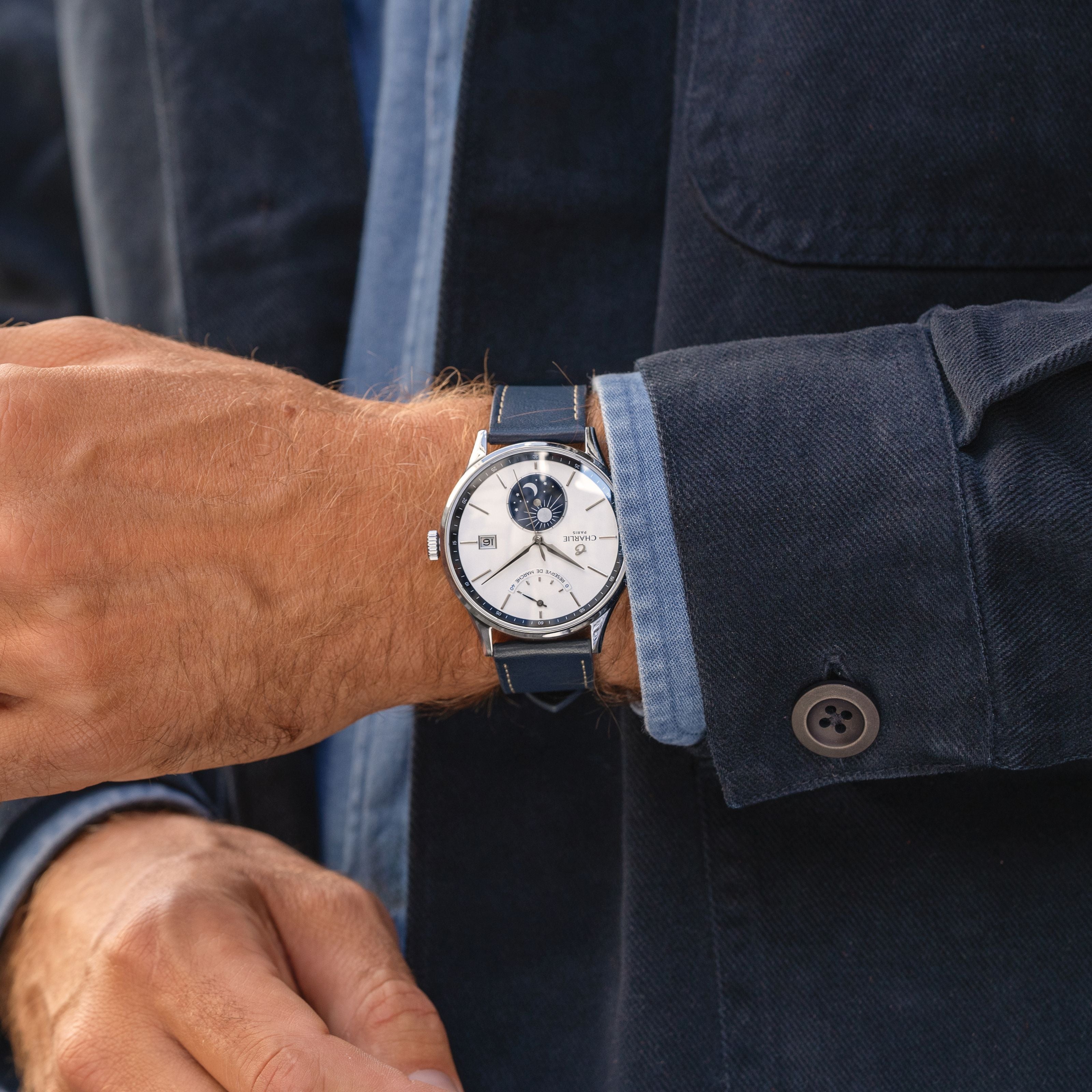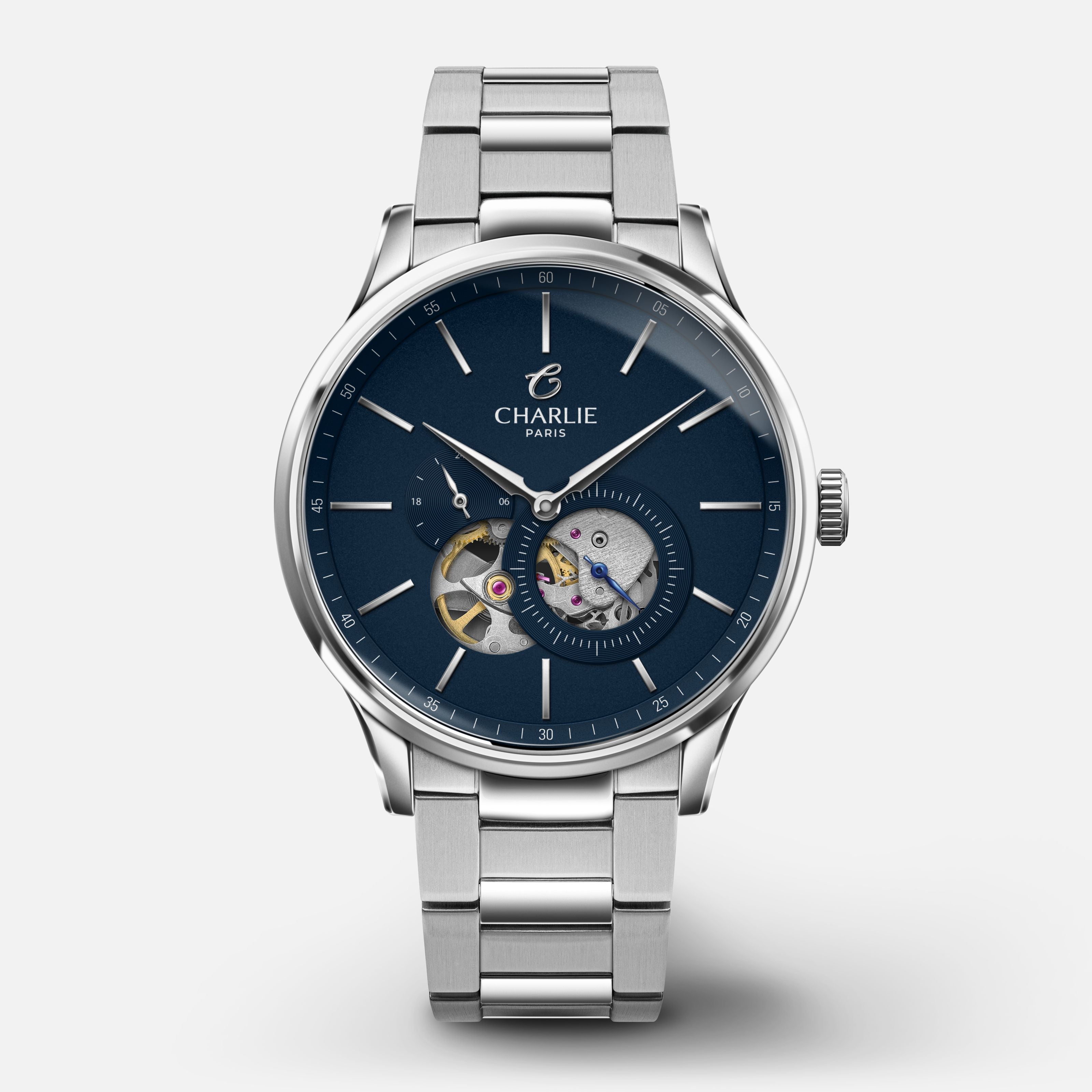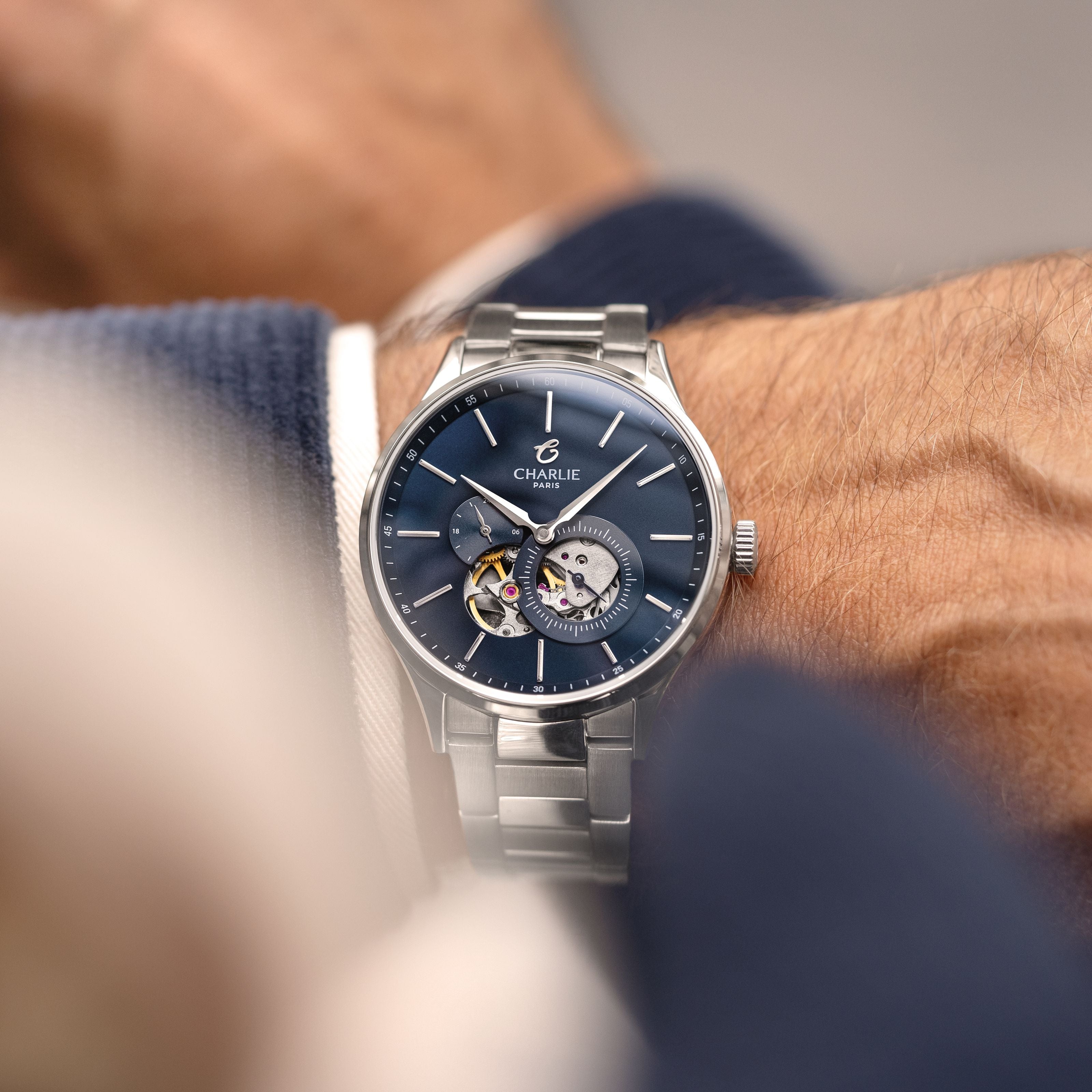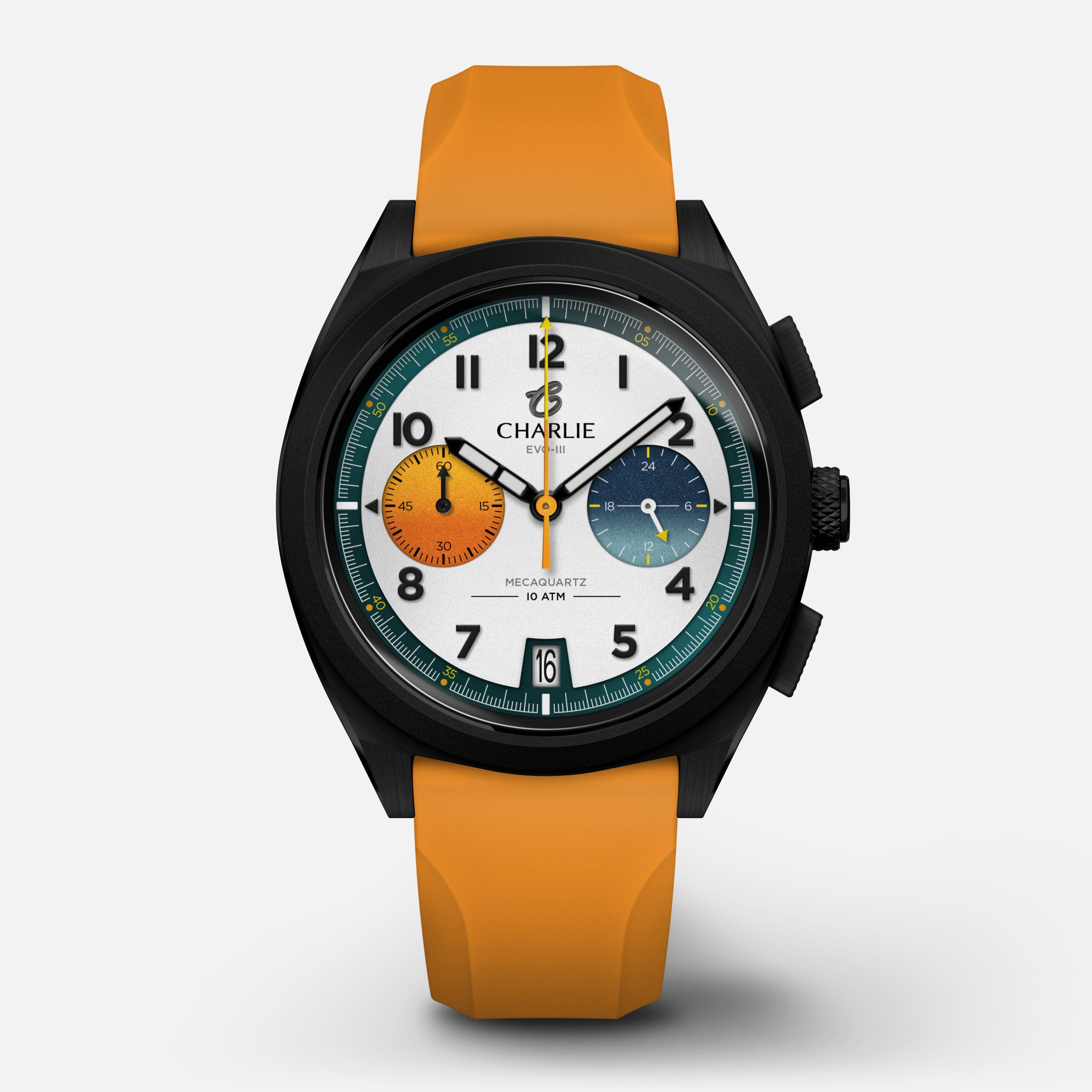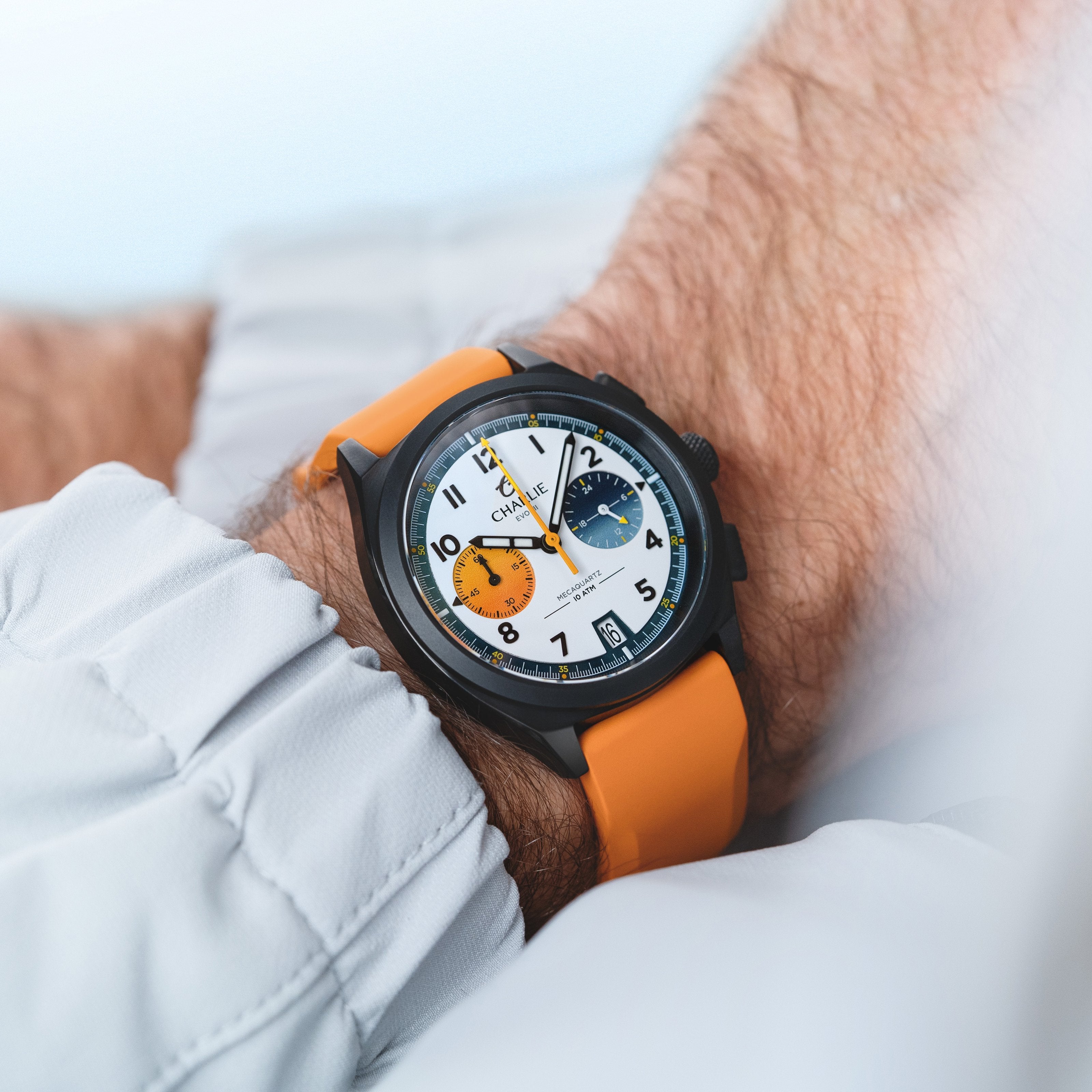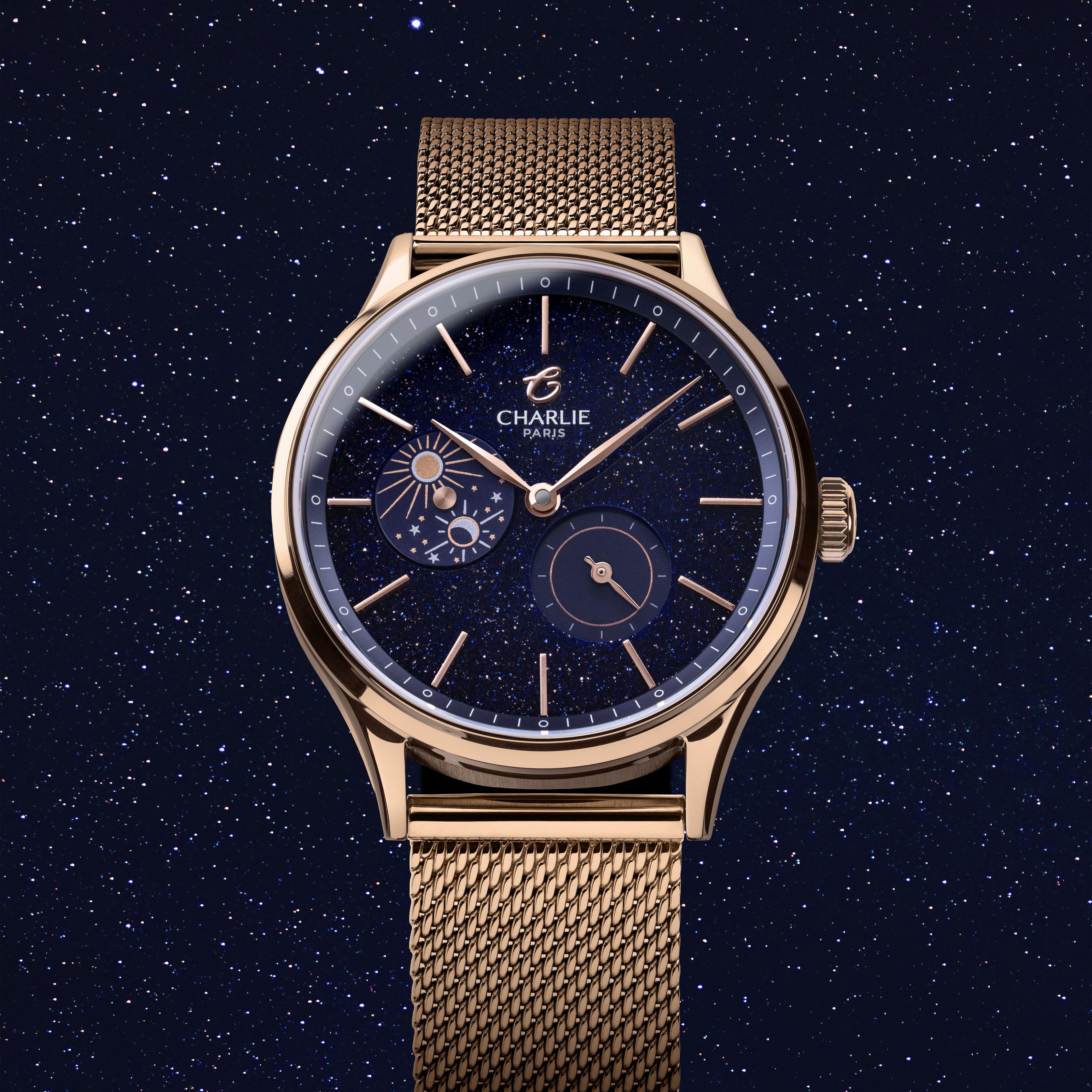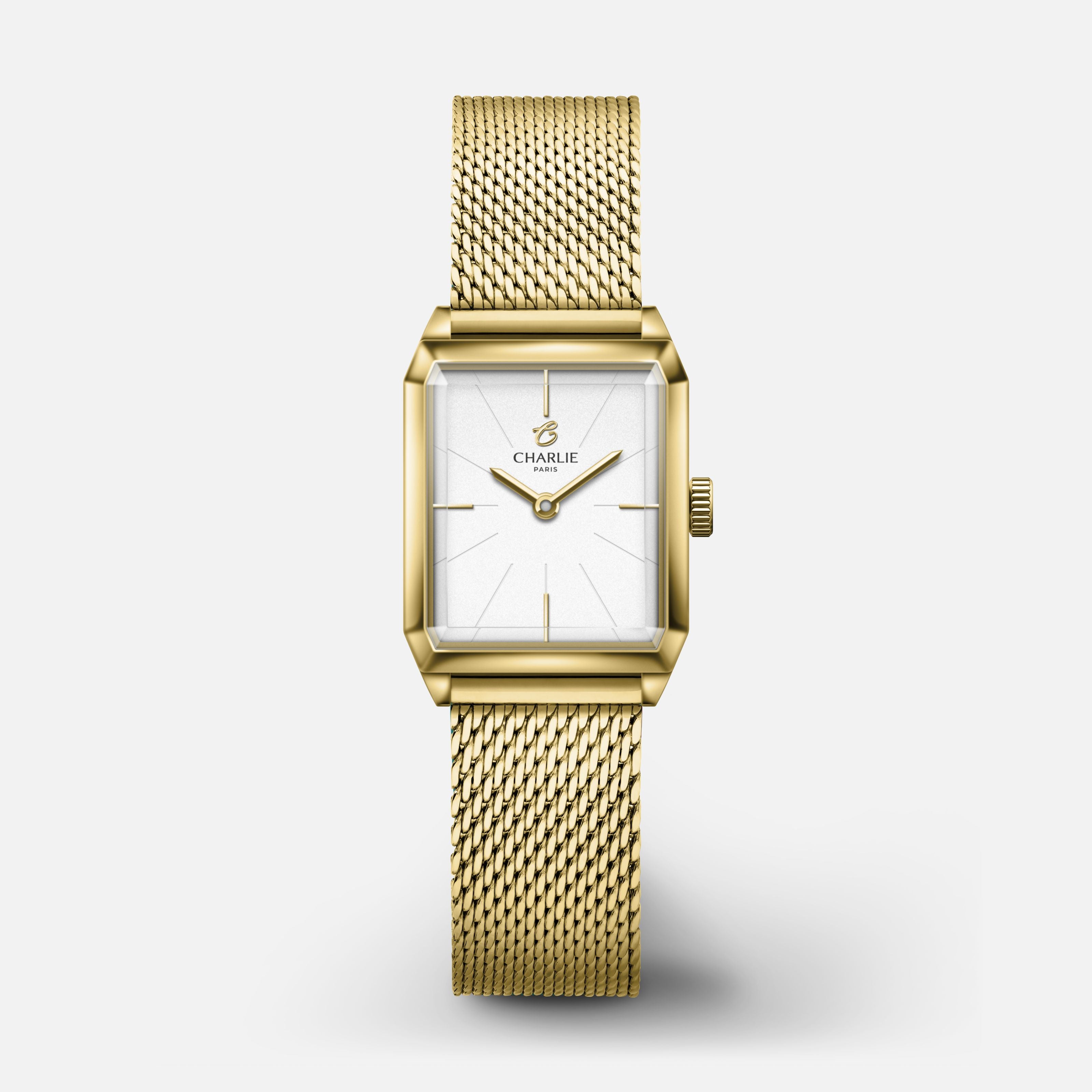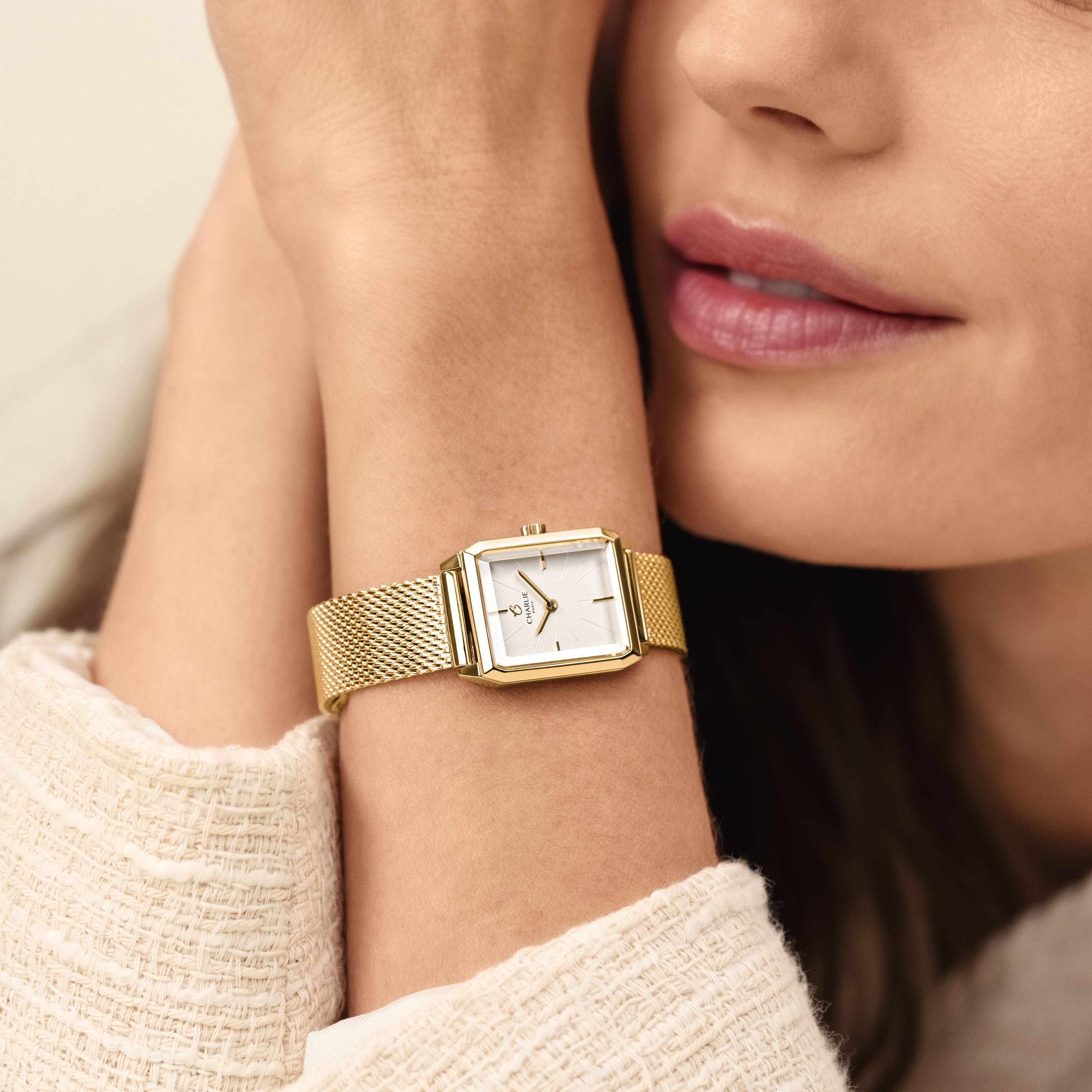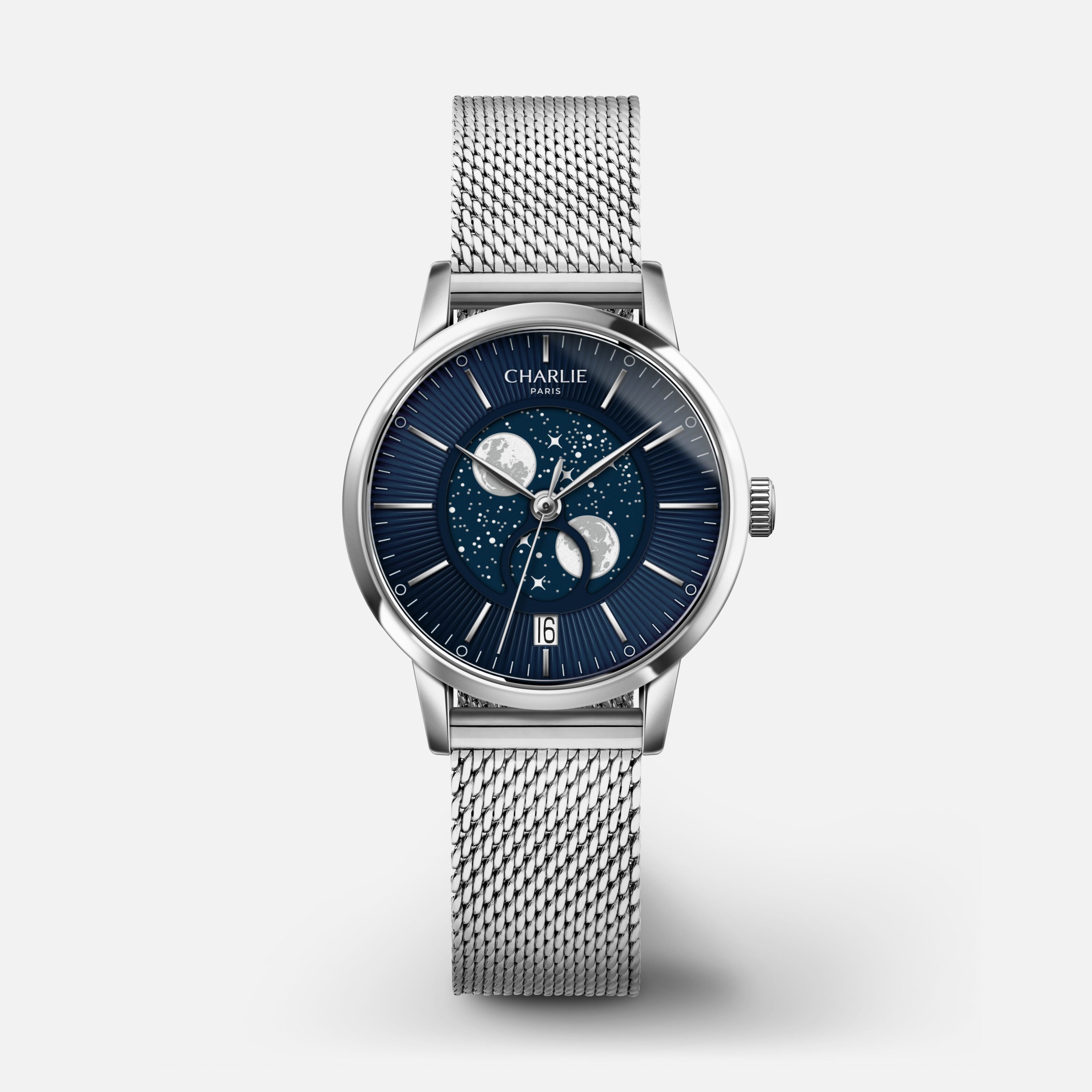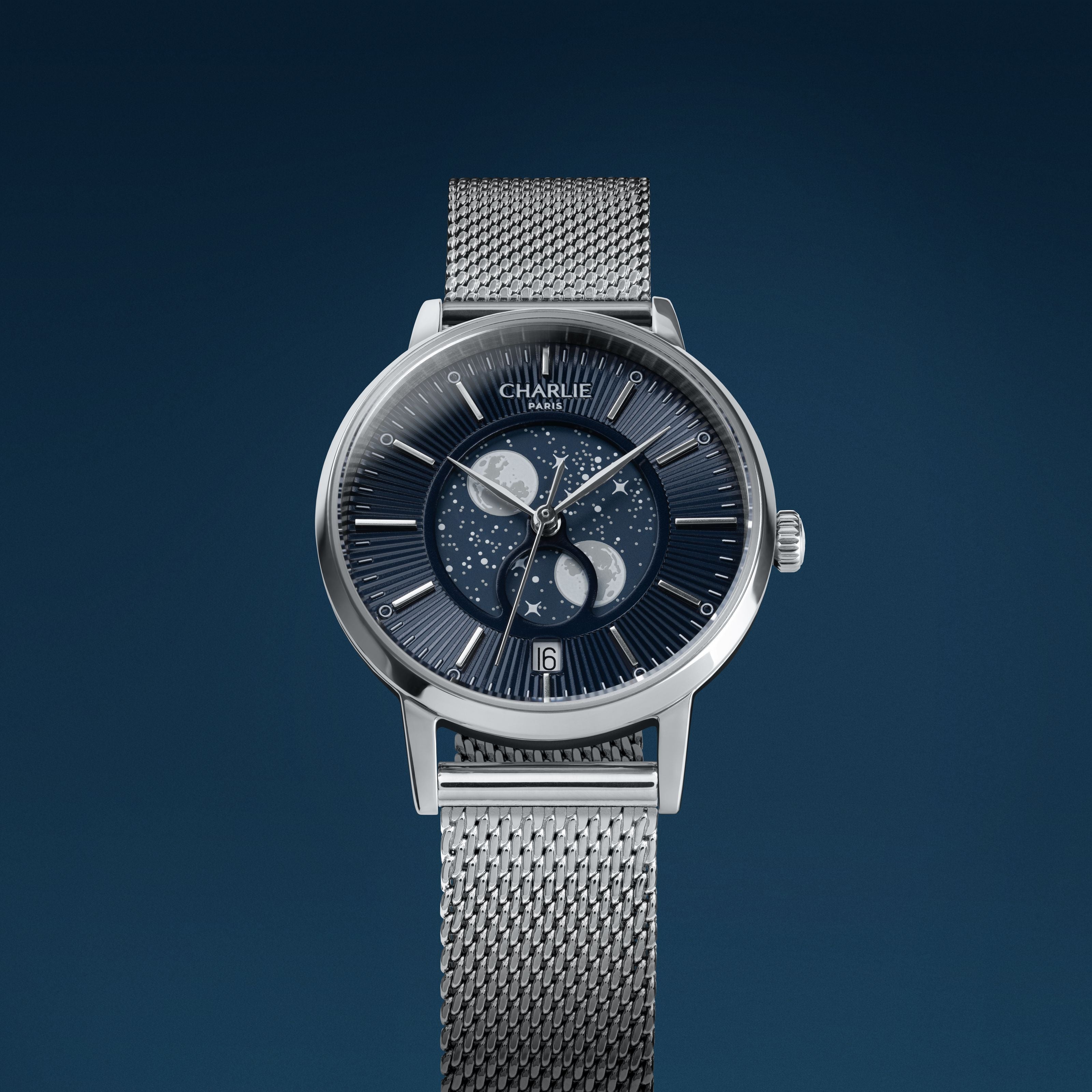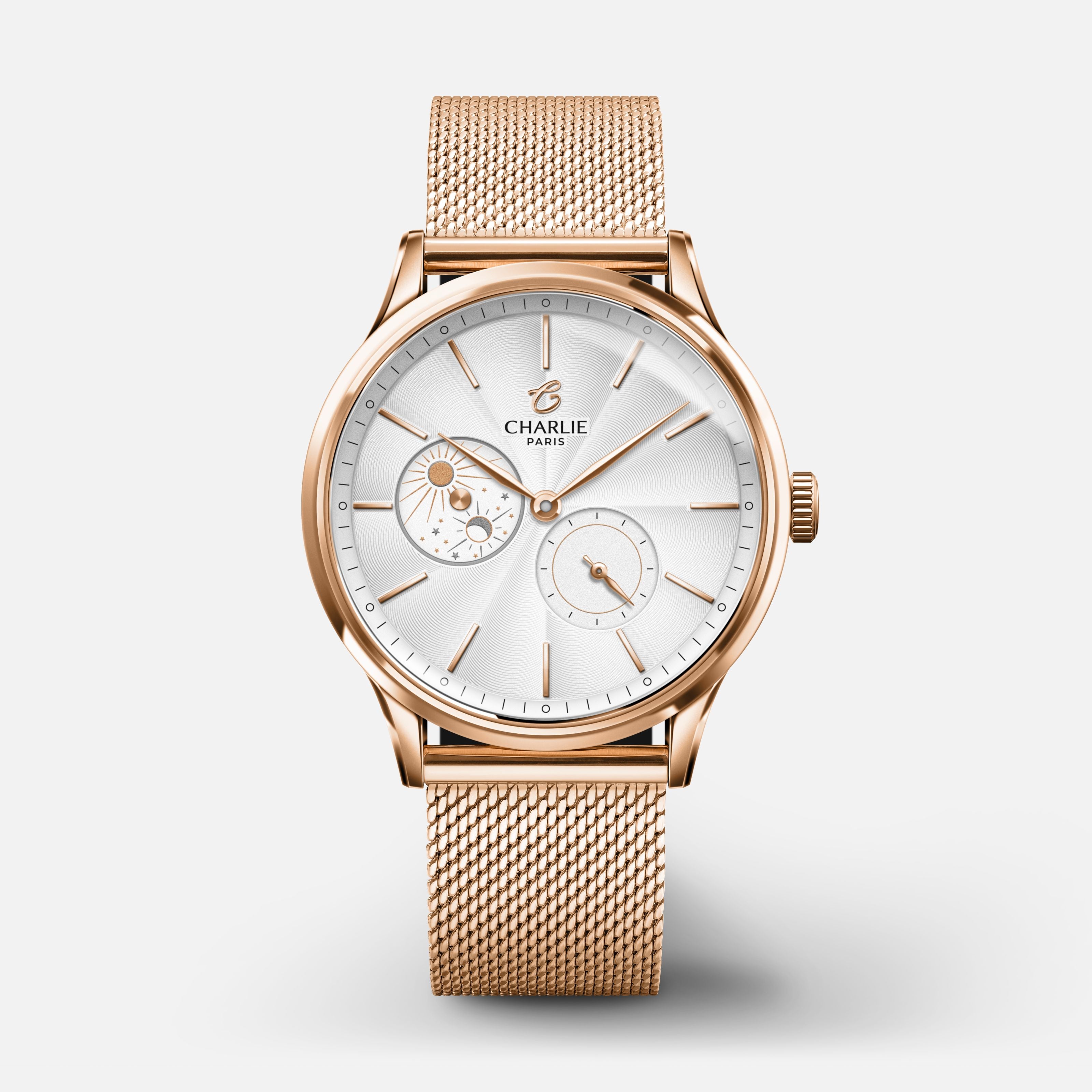It is impossible to be interested in the history of watchmaking and watches without highlighting the role of quartz and its movements. Men's quartz watches are the most common on the watch market, but what is a watch with quartz movement and what are its specificities?
The origin of the quartz movement
In the nineteenth century, innovations in electricity and quartz made the watch industry move forward. It all began in 1880, when two French physicists, Pierre and Jacques Curie, decided to take an interest in quartz and discovered an interesting feature of the mineral. It is its piezoelectric effect. This effect implies that under a certain pressure, quartz can generate electricity. Despite this discovery, it was not until 1927 that this particularity was exploited. The Americans Warren Morrison and J.W Horton, carry out the first clock with quartz but it is very massive. It is necessary to wait the Sixties so that the Swiss watch industry launches the first prototypes of watches with quartz but it is the Japanese company Seiko which commercializes the first watch with quartz. However, the quartz watch became very popular in the 1970s. The quartz movement watch is now the most commercialized type of watch in the world, despite a strong craze around the automatic watch.
What are the advantages of a quartz movement?
Now that you know better the origins and the functioning of a quartz watch, here is a small summary of the many advantages of a quartz watch:
- Precision: Unbeatable! Quartz watches have an accuracy of a few seconds per month, that's why it created a "tidal wave" when they appeared. These watches are powered by a battery and thus have a very accurate and reliable mechanism.
- Resistance: Quartz movements are less fragile than mechanical movements which are composed of many more parts. Quartz is more resistant to shocks and vibrations. Unlike mechanical movements, a quartz movement does not require any particular maintenance, except for changing the battery (approximately every two years).
- Price: Quartz watches are less expensive than mechanical watches. Indeed, quartz watches are offered at low cost because they have very few parts. If you are looking for a cheap watch, you can turn to a quartz watch.
- Thickness: Quartz movements have the advantage of being thinner than most mechanical watches. If you are looking for a thin watch and you don't have 10.000 euros to spend, the quartz watch has a definite advantage.
What are the disadvantages of a quartz movement?
Even though quartz watches have many advantages and are the most common on the market, these timepieces have some disadvantages. The main disadvantages of a quartz watch are related to its battery and its life span:
- The battery of a quartz watch generally has a life span of about two years. Depending on the use and energy consumption of the movement. You will therefore have to go to your watchmaker more regularly than for a mechanical watch whose revision is recommended every 5 years.
- Its durability is less than for a mechanical watch. You will always be able to repair a mechanical watch whereas this is not necessarily the case with an electronic quartz movement. One could compare quartz watches to today's cars and mechanical watches to old vintage cars that you can always have repaired.
On the other hand, quartz watches are not always of great interest to watch enthusiasts because they are not very interesting in terms of technicality and know-how. Enthusiasts and those who appreciate the complexity of a watch movement are more likely to choose an automatic watch. However, quartz watches are still a good option for those who want to buy a nice affordable watch.
Read more

At Charlie Paris, a watch is much more than a timepiece: it's a piece of design, a promise of durability, and a reflection of a strong independence. Discover the 10 pillars that have shaped our wa...
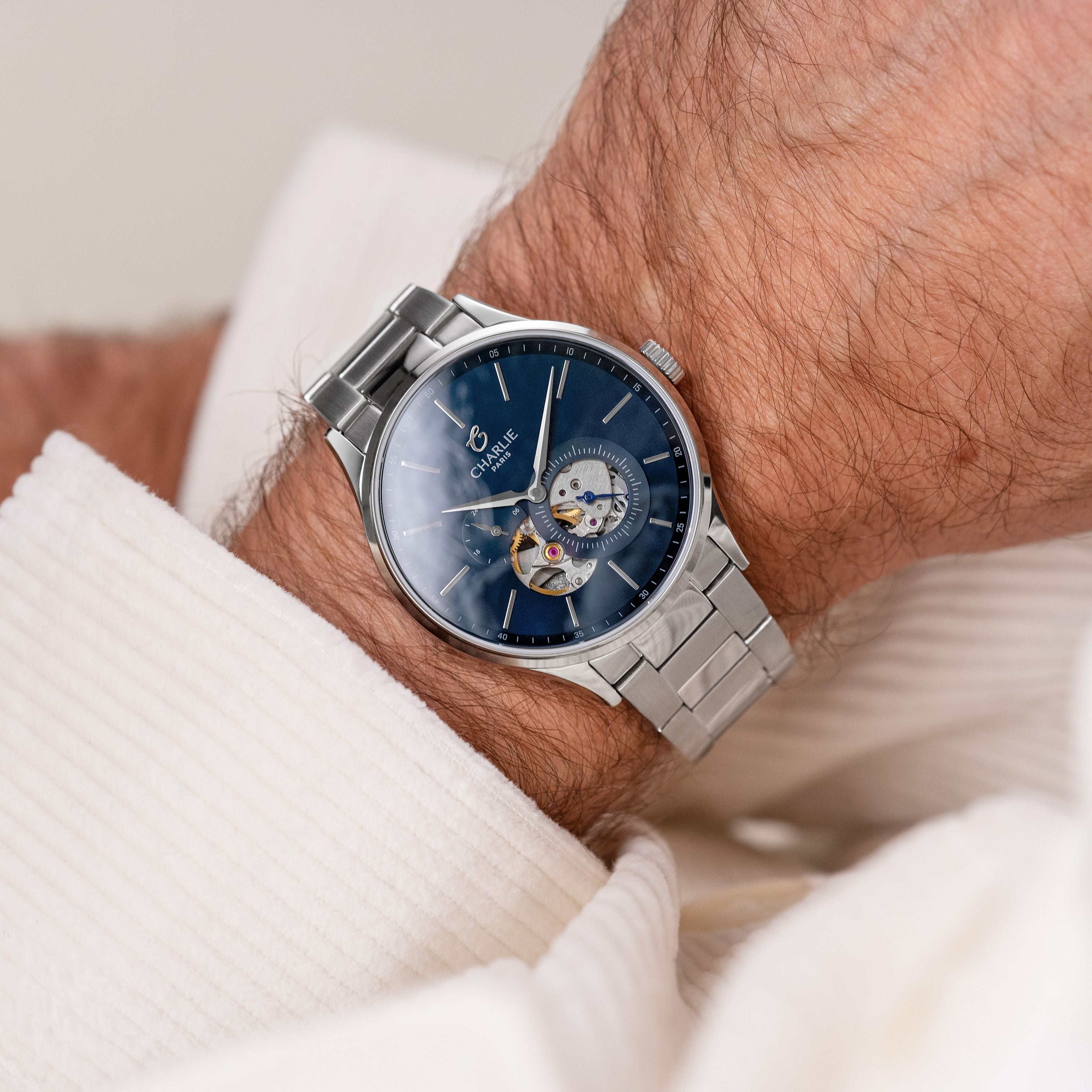
Many of you wear your Charlie on your wrist, but not just any wrist! Very often the left one. There are various explanations for this, but just for you, we have chosen three.


